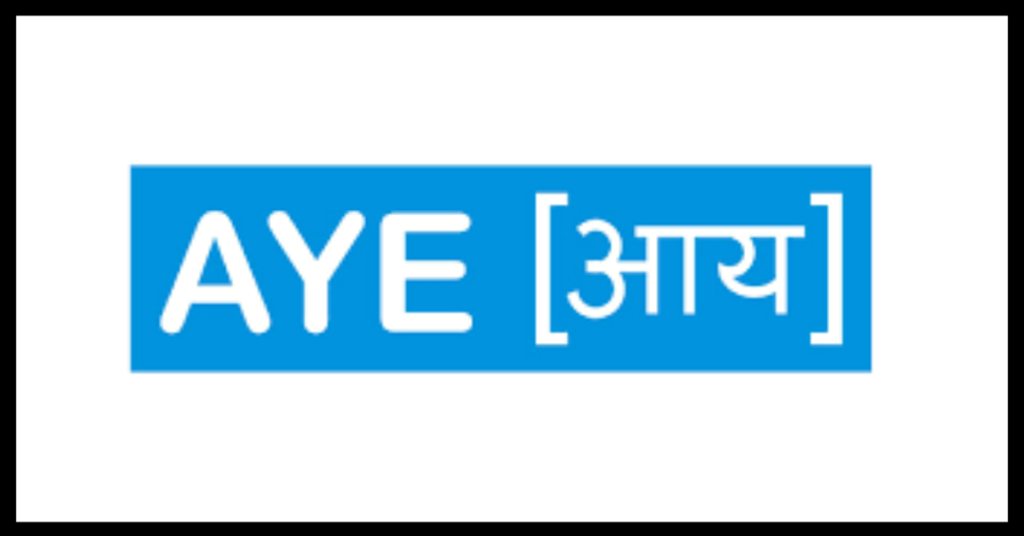Top 10 Financial Inclusion Startups in India, the access to financial services and products at affordable costs, is crucial for economic development and poverty alleviation. In India, several startups have emerged to address gaps in financial services, particularly focusing on underserved populations. Here’s a detailed look at ten notable financial inclusion startups making significant strides in India:
Table of Contents
1. Paytm Payments Bank

Paytm Payments Bank is a leading player in India’s digital payments ecosystem. It offers savings accounts, payment services, and financial products to individuals and businesses, leveraging technology to provide accessible and convenient banking solutions.
| Focus | Overview | Location |
|---|---|---|
| Industry | Digital banking and payments | Noida, Uttar Pradesh |
| Description | Paytm Payments Bank offers savings accounts, digital payment services, and financial products through its mobile app. It aims to provide accessible banking solutions to individuals and businesses across India, leveraging technology to enhance financial inclusion. Paytm Payments Bank facilitates seamless digital transactions and financial management for its customers. |
2. Jio Payments Bank

Jio Payments Bank, a joint venture between Reliance Industries and State Bank of India, aims to promote financial inclusion through digital banking solutions. It provides savings accounts, remittance services, and digital payment options to customers across India.
| Focus | Overview | Location |
|---|---|---|
| Industry | Digital banking and financial services | Mumbai, Maharashtra |
| Description | Jio Payments Bank, a joint venture between Reliance Industries and State Bank of India, provides savings accounts, remittance services, and digital payment solutions. It aims to enhance financial inclusion by leveraging Jio’s digital infrastructure to offer accessible banking services across India. Jio Payments Bank focuses on providing convenient and secure digital banking experiences for its customers. |
3. Aye Finance

Aye Finance specializes in providing microloans to underserved micro-enterprises and small businesses. Using innovative credit assessment methodologies and technology, Aye Finance enables access to formal credit for businesses in sectors like manufacturing, trading, and services.
| Focus | Overview | Location |
|---|---|---|
| Industry | Micro and small business lending | Gurugram, Haryana |
| Description | Aye Finance specializes in providing microloans to underserved micro-enterprises and small businesses in India. It uses innovative credit assessment methodologies and technology to extend formal credit to businesses in sectors like manufacturing, trading, and services. Aye Finance aims to promote financial inclusion by offering customized financial solutions that cater to the specific needs of small businesses, enabling them to grow and thrive. |
4. Capital Float

Capital Float offers flexible financing solutions to small and medium enterprises (SMEs) in India. Through its digital platform, Capital Float provides working capital loans, invoice financing, and other financial products tailored to meet the needs of SMEs.
| Focus | Overview | Location |
|---|---|---|
| Industry | SME lending and digital finance | Bengaluru, Karnataka |
| Description | Capital Float offers flexible financing solutions to small and medium enterprises (SMEs) in India. It provides working capital loans, invoice financing, supply chain financing, and other financial products through its digital platform. Capital Float leverages technology and data analytics to streamline the lending process, assess creditworthiness, and offer quick disbursals to SMEs. The company focuses on empowering SMEs with accessible and efficient financial solutions to support their business growth. |
5. RupeeRedee

RupeeRedee provides instant personal loans and other financial products through its digital platform. It targets underserved segments of the population, offering quick and transparent access to credit without traditional paperwork or delays.
| Focus | Overview | Location |
|---|---|---|
| Industry | Digital lending and personal finance | Gurgaon, Haryana |
| Description | RupeeRedee offers instant personal loans and financial products through its digital platform. It targets underserved segments of the population, providing quick and transparent access to credit without traditional paperwork or delays. RupeeRedee aims to promote financial inclusion by offering accessible and convenient financial solutions that meet the short-term financing needs of individuals in India. |
6. ZestMoney

ZestMoney offers digital consumer financing solutions, particularly focusing on making purchases more affordable through EMIs (Equated Monthly Installments). It partners with e-commerce platforms and retailers to provide instant credit options to customers.
| Focus | Overview | Location |
|---|---|---|
| Industry | Consumer finance and affordability | Bengaluru, Karnataka |
| Description | ZestMoney provides digital consumer financing solutions, particularly focusing on making purchases more affordable through EMIs (Equated Monthly Installments). It partners with e-commerce platforms and retailers to offer instant credit options to customers at the point of sale. ZestMoney aims to enhance financial inclusion by enabling consumers to access credit easily and affordably, thereby expanding their purchasing power and financial flexibility. |
7. NeoGrowth

NeoGrowth specializes in providing short-term loans to retail merchants and small businesses. It leverages transaction data and technology to assess creditworthiness, enabling quick disbursals and easy repayment options tailored to merchant cash flows.
| Focus | Overview | Location |
|---|---|---|
| Industry | Retail and merchant financing | Mumbai, Maharashtra |
| Description | NeoGrowth specializes in providing short-term loans to retail merchants and small businesses in India. It uses transaction data and technology to assess creditworthiness and offer quick and tailored financing solutions. NeoGrowth aims to promote financial inclusion by supporting the cash flow needs of retail merchants, enabling them to expand their business. |
8. Lendingkart

Lendingkart uses data analytics and machine learning algorithms to provide working capital loans and business loans to SMEs in India. It focuses on streamlining the lending process and supporting the growth of small businesses with timely financial assistance.
| Focus | Overview | Location |
|---|---|---|
| Industry | SME lending and credit assessment | Ahmedabad, Gujarat |
| Description | Lendingkart uses data analytics and machine learning algorithms to provide working capital loans and business loans to SMEs in India. It focuses on simplifying the lending process and supporting the growth of small businesses with timely financial assistance. Lendingkart aims to enhance financial inclusion by leveraging technology to offer quick and efficient financing solutions tailored to SMEs’ needs. |
9. EarlySalary

EarlySalary offers instant salary advances and personal loans through its mobile app. It targets young professionals and salaried individuals, providing them with convenient access to short-term credit and financial planning tools.
| Focus | Overview | Location |
|---|---|---|
| Industry | Salary advances and personal finance | Pune, Maharashtra |
| Description | EarlySalary offers instant salary advances and personal loans through its mobile app. It targets young professionals and salaried individuals, providing them with convenient access to short-term credit and financial planning tools. EarlySalary aims to promote financial inclusion by offering transparent and accessible financial solutions that cater to the needs of its customers. |
10. Khatabook

Khatabook offers a digital ledger app designed for small businesses and merchants to manage their accounts digitally. It simplifies record-keeping and enables financial inclusion by providing tools for digital payments and credit tracking.
| Focus | Overview | Location |
|---|---|---|
| Industry | Digital ledger and financial inclusion for small businesses | Bengaluru, Karnataka |
| Description | Khatabook offers a digital ledger app designed for small businesses and merchants to manage their accounts digitally. It simplifies record-keeping and enables financial inclusion by providing tools for digital payments, credit tracking, and financial management. Khatabook aims to empower small businesses in India by digitizing their financial operations and facilitating access to financial services. |
frequently asked questions (FAQs) for each of the Top 10 Financial Inclusion Startups in India:
1. What are the top 5 fintech startups in India?
Answer: The top 5 fintech startups in India include Paytm, PhonePe, Razorpay, Policybazaar, and Zerodha. These companies have made significant strides in digital payments, insurance technology, and investment platforms.
2. Who started financial inclusion in India?
Answer: The concept of financial inclusion in India gained prominence with initiatives by organizations like NABARD (National Bank for Agriculture and Rural Development) and RBI (Reserve Bank of India). Specific pioneers include Dr. Rangarajan, who emphasized the importance of banking services for the rural population.
3. Is financial inclusion successful in India?
Answer: Financial inclusion in India has made notable progress, with increased access to banking services and digital payments across rural and urban areas. However, challenges such as last-mile connectivity and digital literacy remain to be fully addressed.
4. What are the top 10 financial inclusion startups in India?
Answer: The top 10 financial inclusion startups in India include Aye Finance, Capital Float, Jio Payments Bank, Paytm Payments Bank, RupeeRedee, ZestMoney, Khatabook, EarlySalary, NeoGrowth, and Lendingkart. These startups focus on providing financial services to underserved segments of the population.
5. What are the top 20 fintech companies in India?
Answer: Some of the top 20 fintech companies in India include Flipkart-owned PhonePe, Paytm, Razorpay, Policybazaar, Zerodha, CRED, Niyo, BharatPe, MobiKwik, and Lendingkart. These companies operate across various sectors such as payments, lending, insurance, and wealth management.
6. What are the top 50 fintech companies in India?
Answer: The top 50 fintech companies in India encompass a wide range of sectors including digital payments, lending, insurance technology, and investment platforms. Examples include Pine Labs, Upstox, PayU, InCred, Coverfox, and ClearTax, among others.
7. What are the top 10 fintech companies in India?
Answer: The top 10 fintech companies in India include well-known names such as Paytm, PhonePe, Razorpay, Policybazaar, Zerodha, CRED, Niyo, BharatPe, MobiKwik, and Lendingkart. These companies have significantly impacted the fintech landscape with innovative solutions.
8. Which are the financial inclusion companies in India?
Answer: Financial inclusion companies in India focus on providing banking and financial services to underserved populations. Some prominent examples include Aye Finance, Capital Float, Jio Payments Bank, Paytm Payments Bank, and RupeeRedee, among others.
9. What are the top 100 fintech companies in India?
Answer: The top 100 fintech companies in India encompass a diverse array of firms across digital payments, lending, insurance, wealth management, and regulatory technology. They include emerging startups and established players driving innovation in the financial services sector.
10. What are the top 5 fintech companies in India?
Answer: The top 5 fintech companies in India are Paytm, PhonePe, Razorpay, Policybazaar, and Zerodha. These companies have revolutionized digital payments, insurance technology, and investment platforms, making them leaders in the Indian fintech industry.
11. Can you provide a list of fintech companies in India?
Answer: Sure! Here’s a list of fintech companies in India:
- Paytm
- PhonePe
- Razorpay
- Policybazaar
- Zerodha
- CRED
- Niyo
- BharatPe
- MobiKwik
- Lendingkart
- Upstox
- Pine Labs
- InCred
- Capital Float
- And many more emerging startups and established players contributing to the fintech ecosystem in India.
12. How do fintech startups contribute to financial inclusion in India?
Answer: Fintech startups contribute to financial inclusion in India by leveraging technology to provide accessible and affordable financial services to underserved populations. They facilitate digital payments, offer microloans, provide insurance coverage, and enable investment opportunities through user-friendly platforms.
13. What role do fintech companies play in the Indian economy?
Answer: Fintech companies play a pivotal role in the Indian economy by promoting financial inclusion, driving digital transformation in financial services, enhancing operational efficiency, and fostering innovation. They cater to diverse consumer needs and contribute to economic growth through technological advancements.
14. How are fintech companies regulated in India?
Answer: Fintech companies in India are regulated by various authorities such as the Reserve Bank of India (RBI), Securities and Exchange Board of India (SEBI), and Insurance Regulatory and Development Authority of India (IRDAI). Regulations ensure consumer protection, data security, and adherence to financial norms.
15. What are the challenges faced by fintech startups in India?
Answer: Challenges faced by fintech startups in India include regulatory compliance, funding constraints, competition from traditional financial institutions, cybersecurity threats, customer trust-building, and scaling operations in diverse markets.
16. How can individuals benefit from fintech services in India?
Answer: Individuals in India can benefit from fintech services by gaining access to convenient digital payments, quick loan approvals, personalized investment advice, affordable insurance options, and seamless money transfers. Fintech services enhance financial inclusion and improve financial literacy among consumers.
17. What are the emerging trends in the Indian fintech industry?
Answer: Emerging trends in the Indian fintech industry include the rise of digital banking platforms, growth in peer-to-peer lending, adoption of blockchain technology for secure transactions, expansion of InsurTech solutions, and increasing use of artificial intelligence for financial analytics and customer service.
18. How are fintech startups promoting cashless transactions in India?
Answer: Fintech startups promote cashless transactions in India by offering digital wallets, payment gateways, QR code payments, and mobile banking apps. These solutions reduce reliance on cash, enhance convenience for users, and contribute to the government’s goal of a digital economy.
19. What impact do fintech innovations have on traditional banking in India?
Answer: Fintech innovations in India compel traditional banks to adopt digital technologies, improve customer experiences, streamline operations, and offer competitive financial products. Collaboration between fintech startups and banks also enhances service delivery and expands market reach.
20. How are fintech companies fostering financial literacy in India?
Answer: Fintech companies in India foster financial literacy by providing educational resources, interactive tools, and personalized financial advice through digital platforms. They empower consumers to make informed decisions about savings, investments, loans, and insurance, thereby promoting financial inclusion and economic empowerment.
Conclusion:
These ten financial inclusion startups exemplify India’s dynamic fintech landscape, addressing barriers to financial services through innovation and technology. By focusing on digital banking, microfinance, SME lending, and consumer finance, these startups not only expand access to financial products but also empower individuals and businesses to participate more actively in the economy. As they continue to innovate and scale their operations, these startups are contributing significantly to enhancing financial inclusion and economic empowerment across India.
Also Read:
Top 10 GreenTech Startups in india
Top 10 SpaceTech Startups in india
Top 10 Mobility as a Service (MaaS) Startups in india
Top 10 Cyber Defense Startups in india
Top 10 Legal Services Startups in india
Top 10 Remote Work Startups in india
Top 10 Gig Economy Startups in india
Top 10 Data Privacy Startups in india
Top 10 E-learning Startups in india
Top 10 Language Learning Startups in india
Top 10 Coding Bootcamps in india
Top 10 Financial Inclusion Startups in india
Top 10 Microfinance Startups in india
Top 10 Social Impact Startups in india
Top 10 Sustainable Startups in india
Top 10 Circular Economy Startups in india
Top 10 ClimateTech Startups in India
Top 10 Electric Vehicle Startups in india
Top 10 Drone Startups in india
Top 10 Smart City Startups in india
Top 10 Sustainable Fashion Startups in india
Top 10 RegTech Startups in india
Top 10 Smart Home Startups in india
Top 10 HR Software Startups in india
Top 10 Food Delivery Startups in india
Top 10 Event Companies in india
Top 10 Women in Tech Startups in india
Top 10 Food Waste Startups in india
Top 10 Digital Transformation Startups in india
Top 10 Platforms in india to get Remote Work
Top 10 Telecommunications Startups in india
Top 10 Gaming Startups in india
Top 10 Podcasting Startups in india
Top 10 Green Energy Startups in india
Last Updated on Sunday, July 7, 2024 10:06 am by Maharashtra Newswire Team



